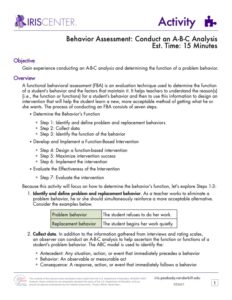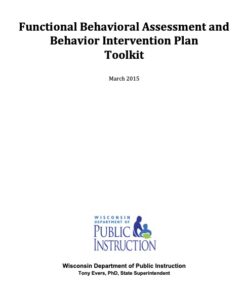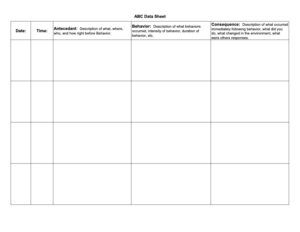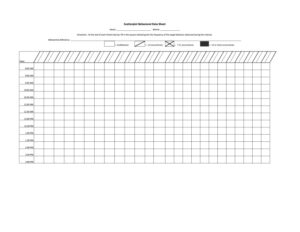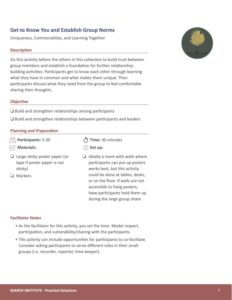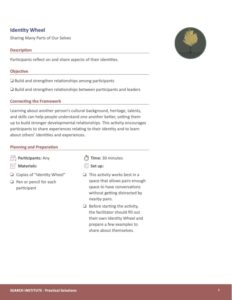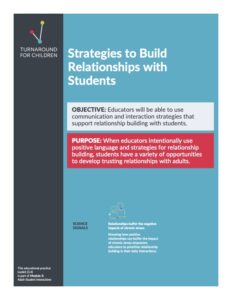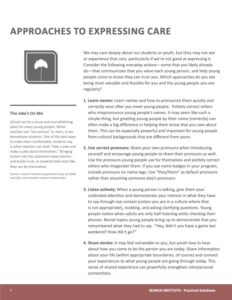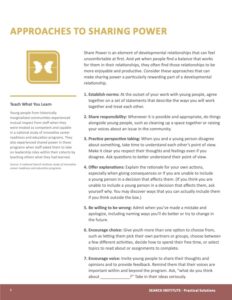Resources for Teachers
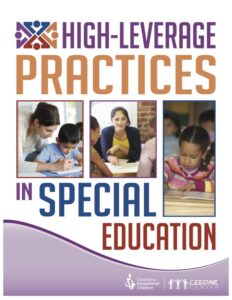
High Leverage Practices in Special Education [Book]
High-Leverage Practices (HLPs) in Special Education defines the activities that all special educators need to be able to use in their classrooms. The HLP Writing Team is a collaborative effort of the Council for Exceptional Children, its Teacher Education Division, and the CEEDAR Center; its members include practitioners, scholars, researchers, teacher preparation faculty, and education advocates.
Videos related to High-Leverage Practices for Students with Disabilities [Resources Library]
In this extensive video library of HLP videos, you can search for content by HLP as well as by your learning goals to learn more and see HLPs in action in classrooms.
IRIS Center Resource [Locator]
This locator can be used to find information, activities, and case studies about a variety of topics that are useful to special educators. The IRIS Center is a national center dedicated to improving education outcomes for all children, especially those with disabilities birth through age twenty-one, through the use of effective evidence-based practices and interventions.
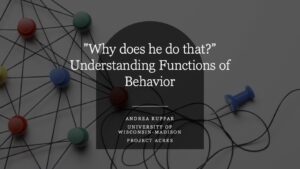 Presentation on Functions of Behavior [PDF]
Presentation on Functions of Behavior [PDF]
This brief presentation by Dr. Andrea Ruppar covers the basics of the functions of behavior.
Conducting an ABC Analysis [PDF]
Teaching and Reinforcing Rules
Toolkit for Functional Behavior Assessments (FBA) [PDF]
This Department of Public Instruction toolkit provides background, explanation, and tools for conducting an FBA.
ABC Data Sheet [PDF]
Scatterplot Data Sheet [PDF]
The Supporting Neurodiverse Students Professional Learning System (SNS) provides adults the training and resources they need to implement evidence-based improvement strategies to support the growth of students who have significantly divergent social and emotional learning needs.
Classroom Tools for Implementing PBIS
An evidence-based, tiered framework for supporting students’ behavioral, academic, social, emotional, and mental health. You can use the search engine on this page to find PBIS tools by topic as well as keyword to learn more about tools that could be useful for your practice.
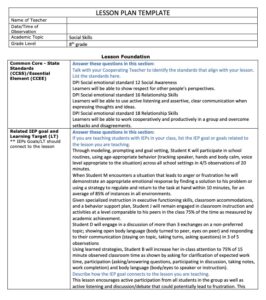 SEL Sample Lesson Plan [View Template] [Download Template]
SEL Sample Lesson Plan [View Template] [Download Template]
A sample lesson plan for what a lesson in the area of Social-Emotional Learning could look like for an 8th grade group. The template can be re-used for other SEL Lessons.
College & Career Ready (CCR) IEP Training and Support
Accommodations and Modifications [Video]
This video provides an overview of the differences between accommodations and modifications and provides examples of each.
DPI College & Career Ready IEP [Video]
This video from the Department of Public Instruction outlines the steps for developing a college and career ready IEP.
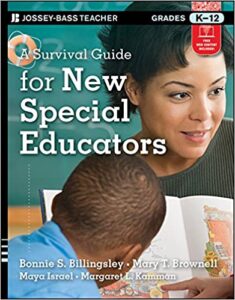 IEP Book Chapter [PDF]
IEP Book Chapter [PDF]
This brief book chapter provides an overview of developing quality IEPs. It is from A Survival Guide for New Special Educators
by Mary T. Brownell, Bonnie S. Billingsley, Maya Israel, and Margaret L. Kamman.
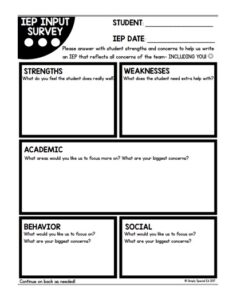 IEP Student Input Survey [PDF]
IEP Student Input Survey [PDF]
This is a survey template that can be used to gather information from a student as a part of engaging them in their IEP process.
Autism-Focused Intervention (AFIRM) [Resources & Modules]
The AFIRM resources & modules are designed to help you learn the step-by-step process of planning for, using, and monitoring an EBP with learners with autism from birth to 22 years of age. Supplemental materials and handouts are available for download. Once you create a login, materials are free of charge.
OCALI Autism Professional Development Modules [Website]
Autism Internet Modules (AIM) are designed for those who support, instruct, work with, or live with someone with autism. The Autism Internet Modules (AIM) guide users through case studies, instructional videos, pre- and post-assessments, discussion questions, activities, and more. Once you create a login, materials are free of charge.
Center for Literacy and Disability Studies [Resources]
The Center for Literacy and Disability Studies (CLDS) is a unit in the University of North Carolina (UNC) School of Medicine Department of Allied Health Sciences. The CLDS addresses the needs of individuals with a range of disabilities in response to the demands of families, educators, and health care professionals across the United States and the world.
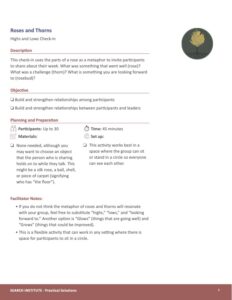
Roses and Thorns [PDF]
This check-in activity from the Search Institute uses the parts of a rose as a metaphor to invite participants to share about their week. What was something that went well (rose)? What was a challenge (thorn)? What is something you are looking forward to (rosebud)?
Setting Group Norms [PDF]
This activity from the Search Institute helps build trust between group members and establish a foundation for further relationship-building activities.
Identity Wheel [PDF]
In this activity from the Search Institute, participants reflect on and share aspects of their identities.
Strategies to Build Relationships with Students [PDF]
This accessible publication from Turnaround for Children provides support for educators to use communication and interaction strategies that support relationship building with students.
Ways to Express Care to Students [PDF]
These are practical suggestions from the Search Institute for how to show students we care.
Ways to Share Power with Students [PDF]
These are practical approaches from the Search Institute for how to share power with students.
The National Center on Improving Literacy
The National Center on Improving Literacy is a partnership among literacy experts, university researchers, and technical assistance providers, with funding from the United States Department of Education.

